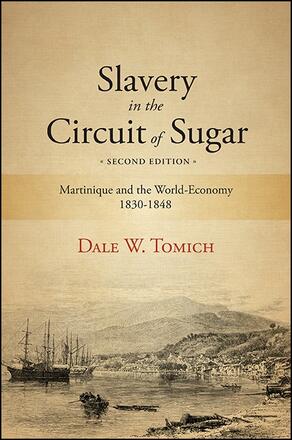
Slavery in the Circuit of Sugar, Second Edition
Martinique and the World-Economy, 1830-1848
Alternative formats available from:
Open access edition available from:
Traces the historical development of slave labor and plantation agriculture in nineteenth-century Martinique.
Description
A classic text long out of print, Slavery in the Circuit of Sugar traces the historical development of slave labor and plantation agriculture in Martinique during the period immediately preceding slave emancipation in 1848. Interpreting these events against the broader background of the world-economy, Dale W. Tomich analyzes the importance of topics such as British hegemony in the nineteenth century, related developments of the French economy, and competition from European beet sugar producers. He shows how slaves' adaptation—and resistance—to changing working conditions transformed the plantation labor regime and the very character of slavery itself. Based on archival sources in France and Martinique, Slavery in the Circuit of Sugar offers a vivid reconstruction of the complex and contradictory interrelations among the world market, the material processes of sugar production, and the social relations of slavery. In this second edition, Tomich includes a new introduction in which he offers an explicit discussion of the methodological and theoretical issues entailed in developing and extending the world-systems perspective and clarifies the importance of the approach for the study of particular histories.
This book is freely available in an open access edition thanks to Knowledge Unlatched—an initiative that provides libraries and institutions with a centralized platform to support OA collections and from leading publishing houses and OA initiatives. Learn more at the Knowledge Unlatched website at: https://www.knowledgeunlatched.org/, and access the book online at the SUNY Open Access Repository at http://hdl.handle.net/20.500.12648/7131.
Dale W. Tomich is Deputy Director of the Fernand Braudel Center for the Study of Economies, Historical Systems, and Civilizations, and Professor of Sociology and History at Binghamton University, State University of New York. He is the editor of New Frontiers of Slavery, also published by SUNY Press.
Reviews
"…a valuable contribution to the recent focus on contextualizing slavery by emphasizing its defining relationship with the 'wider world-market. '" — H-Net Reviews (H-LatAm)